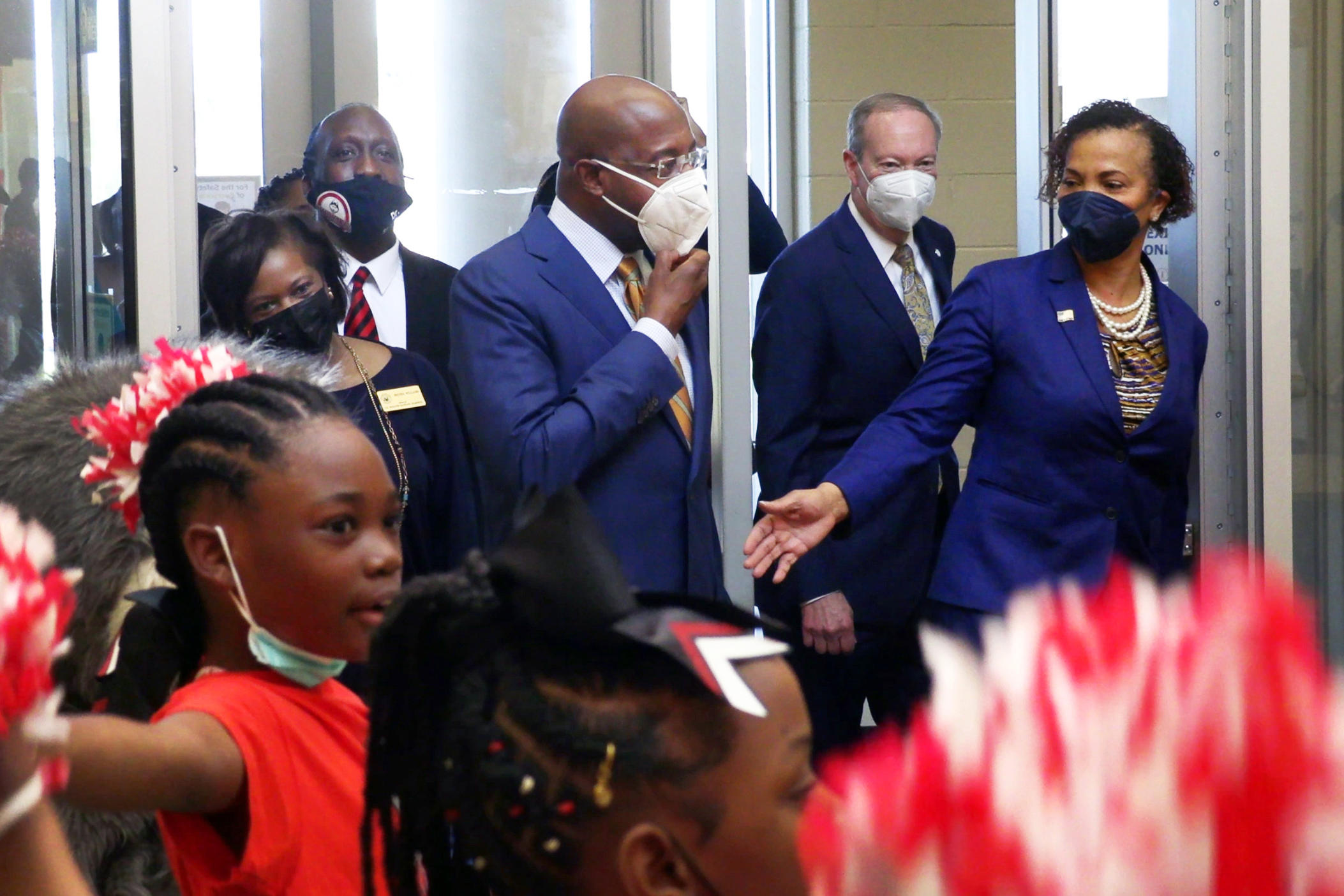Section Branding
Header Content
‘We’ve got to make sure we address this.’ Warnock pushes new mental health bills in Senate
Primary Content
Nick Wooten, Columbus Ledger-Enquirer
Sen. Raphael Warnock (D-GA) discussed portions of his newly proposed mental health package during a visit to Columbus Tuesday.
Warnock toured Dorothy Height Elementary School and participated in a 30-minute roundtable discussion with Muscogee County School District staff members and a student representing the city’s high schools. Warnock said his legislation aims at addressing the mental health crisis facing the state and the nation, and that children should be at the center of the conversation.
“This (COVID-19) pandemic has both unveiled and exacerbated long-standing mental health issues,” Warnock said. “Georgia is the number four state in terms of mental health needs, and we’re near the bottom in terms of mental health care access. So, that’s a recipe for a lot of trauma going untreated.
“We’ve got to make sure we address this,” he added.
Warnock’s legislative package includes five pieces of legislation:
- The Advancing Student Services in Schools Today (ASSIST) Act would create a new grant program at the United States Department of Health and Human Services to hire and retain mental health providers in schools. It includes a 90% increase in federal matching funds to pay for those services.
-
The Improving Access to Tele-Behavioral Health Services Act would create a new grant program at the Substance Abuse and Mental Health Services Administration to support community and peer-based services that allow people to interact with others who have similar experiences of being diagnosed with mental or behavioral health conditions. The program would also provide training and development to increase the workforce.
-
The Crisis Counseling Act would allow states, territories and tribes to more quickly implement FEMA’s Crisis Counseling and Training Program after a disaster is declared under the Stafford Act, the federal framework for how the United States government responds to disasters.
-
The Behavioral Health Coordination and Communication Act would see a new group within the executive office of the president coordinating all mental health and substance use disorder activities. It would also authorize a Government Accountability Office report on behavioral health reimbursement in schools and young people involved in the justice system.
-
Warnock is also proposing a behavior health resolution that the U.S. needs to make “historic financial investments” into mental health and substance use disorder.
Members of the roundtable outlined the district’s needs and said the legislation could help Columbus students. Alice Fry, a school counselor at Aaron Cohn Middle School with 24 years of experience, said she’s made more mental health referrals outside the school this year than any other school year.
Tanner Nelson, a senior at Columbus High School, said Warnock’s proposal could help students deal with the stresses of academic pressure and other mental health concerns.
Muscogee County provides mental health services in seven of its 54 schools, and Warnock’s legislation could help the district expand its efforts, said Kenya Gilmore, the district’s director of prevention and intervention practices.
“We just don’t have enough local providers to do that,” she said. “We’re running into issues, even with the providers that we have not being able to retain the current mental health councilors and social workers that they have.”
Warnock said he’ll be pushing his legislation in Senate committees focused on mental health. Those are expected to be set up over the next few weeks, and the Georgia senator said there should be bipartisan support for his proposal.
“Mental health care is health care, and part of the problem is when we set up this false divide,” Warnock said. “We’re never going to be able to fully address the crisis we are facing until we start placing the same value on mental health.”


